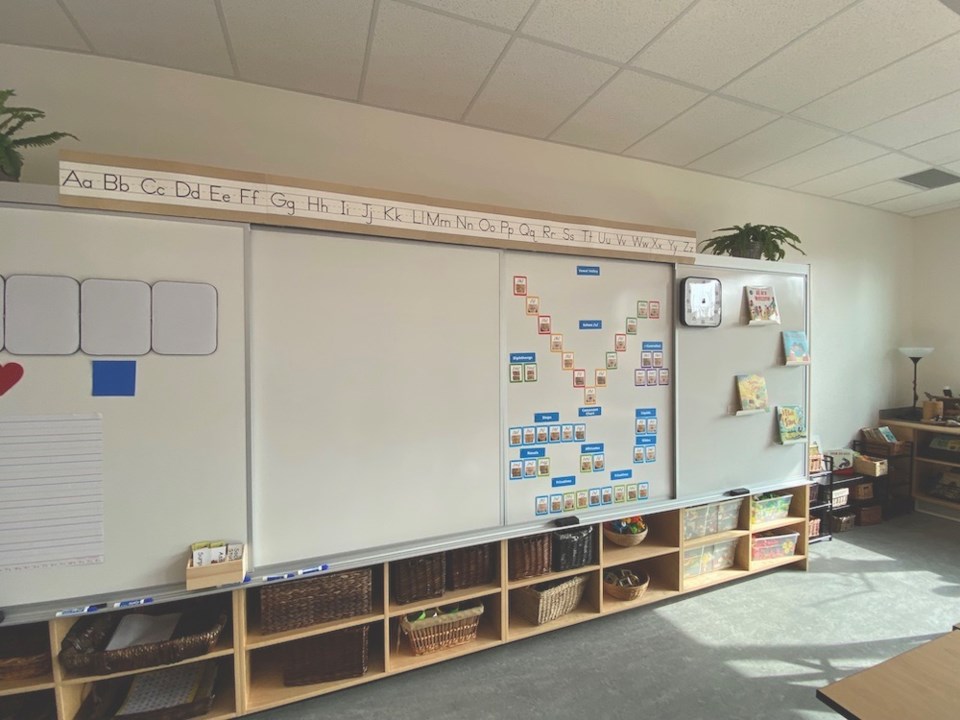Author Robert Fulghum wrote a book All I Really Need to Know I Learned in Kindergarten, and his message is as apt today as it ever was.
In kindergarten, children learn how to get along, how to share, how to be kind to one another and the importance of cleaning up after themselves.
"Kindergarten is a time in which children explore their own feelings, identities, and social relationships with others," states the B.C. government's full-day program guide.
"Many will experience their first regular exposure to children who are different from them — culturally, socio-economically, or developmentally."
Along the way, they also learn the foundations of literacy and numeracy.
That's why kindergarten is such an important year for students entering school for the first time and School District 43 (SD43) educators have some advice for parents as school starts this Tuesday, Sept. 5.
"The interactions with each other is a key focus with kindergarten and they learn the basic skills of literacy and numeracy," says Nadine Tambellini, assistant superintendent with School District 43 (SD43).
"Making sure they start off well is why this year is one of the most important in their whole school career."
Together with Jody Moss, principal of learning services, the two offered tips for parent and caregivers who want to make sure their children start off on the right foot.
Instilling routine
Although it's still summer and school is just a few days away, it's very important to get youngsters into a routine.
That means ensuring that children go to bed and wake up at the same time, having daily rituals such as being read to at bedtime and have breakfast together in the morning.
It's also a good idea to set a daily goal, make time to ask about one's day and encourage youngsters to dress themselves so they don't struggle with boots and buttons in the classroom.
"One of the things we hope that parent do is teach routine and build those skills for independence and confidence," said Tambellini.
Once school starts, it's important to get them to class on time, so they can start their day confidently.
The number of unscheduled absences, such as birthdays, for example, should be minimized.
"On the carpet [first thing in the morning at school], the teacher describes the key learning for the day, if a child is late coming in that day it doesn’t help with making them feel confident," said Moss.
Modelling calm
The first few days of school may be a time of anxiety for children, so it's important for parents to model a sense of calmness.
If a parent is anxious, they should reach out to the school for answers to their questions, the two say.
It may help to visit the school and walk around the building; families can check out the playground so the little tyke understands that school is a "safe" place.
Most families have already been introduced to their school the spring before school starts and will have already visited in person. Their school may have given them a video to watch or other handouts.
Kindergarten has been an all day program for several years but youngsters are introduced through gradual entry, in short sessions with small groups that get increasingly longer.
Reach out with questions
That way the child gets used to the school while the staff get to know the child.
If there are any questions, this is a good time to contact the school, Tambellini said.
"There will be a lot of communication that will tell families how to reach out," she said.





